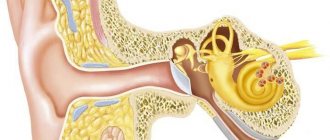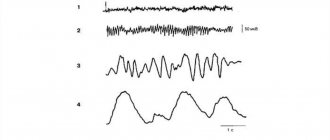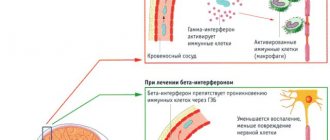Fighting addiction to alcohol is quite long and difficult, plus everything, this struggle may not always end with the result for which they begin to do all this. There are very frequent cases that therapy can only help temporarily, and then everything returns to its place. It happens that tablets, injections and ampoules can minimize the symptoms of physical cravings, but cannot eliminate the psychological influence of alcohol. Therefore, it is important to resort to comprehensive methods, using both physical and psychological struggle in this case. Hypnosis for alcoholism is especially popular because it is a fairly safe but effective technique.
What effect does hypnosis have on alcoholism?
Hypnosis for alcoholism is one of the coding methods, which is getting rid of the desire for alcohol through suggestibility, and in one session. According to basic data, only persons with higher medical education can conduct hypnosis of this kind, and only people who have been trained in psychotherapy can work.
Treatment must be carried out only in a medical building. Such sessions should not be carried out at home under any circumstances. Although despite this, there are those specialists who practice hypnosis at home.
What are the features of this technique:
The main goal of hypnosis for alcohol addiction is to make a person have an aversion to drinking alcohol or complete indifference to any kind of drinks that contain alcohol.
Treatment with hypnosis takes place only in inpatient hospitals after the doctor has conducted the necessary conversation with the patient;
It is necessary that the alcoholic himself has a great desire to get rid of his addiction. Otherwise, everything will be in vain.
The doctor is simply obliged to tell all the details to his patient about the very essence of this hypnotic suggestion and talk about how to behave during the session of this procedure itself.
Hypnotic suggestion can be individual or group.
The office in which treatment is taking place must be isolated from all unnecessary noise.
The patient should sit on comfortable couches or chairs. Loose clothing that does not restrict movement.
The session itself is often divided into three parts: trance, the suggestion itself against alcohol, and directly consolidating the entire result by testing alcohol or inhaling it.
Program content
The author's method of Gennady Andreevich Shichko involves each patient going through several stages of psychological transformation of the individual. At all stages, the patient’s doctor is the addict himself; the role of doctors is to direct the patient’s actions and thoughts in the right direction.
Getting rid of alcoholism using the Shichko method includes several stages:
Appearance assessment from photographs. The first of them is done at the beginning of the path to sobriety, the second after 10 ten days, then after a month and the last after 100 days. Comparing the first two photographs, the patient sees the difference in his appearance and gains confidence that he has taken the right path. After a month, this awareness becomes stronger; after 100 days, the confidence comes that sobriety is the only true path to the future.- Description of the steps of alcoholism and drug addiction - from the first drink to binges. At the same time, attention is paid to sensations and their changes. They dwell in detail on the torment that the patient experienced during a hangover, withdrawal symptoms, and irreversible losses of health. Be sure to add to the written confession the suffering of loved ones, the departure of loved ones, the contempt of others, the loss of a position. The patient must not only write this tragic autobiography, but also constantly reread it and add new memories.
- Recording a sober lifestyle using an anti-alcohol (anti-drug) diary. Everything that happens to the patient, what he thinks about from the moment he gives up stimulants, should be reflected in this document. A comparison of the initial periods of sobriety and subsequent ones reveals an increase in positivity, which is the key to not returning to the drug or alcohol nightmare.
Studying your suggestibility. The patient mentally convinces himself that he cannot raise his hand. If after several repetitions he fails to do this, or manages to lift the limb with difficulty, then he is easily suggestible. If self-hypnosis does not work, the person’s own suggestibility is zero or close to zero.- Working with self-hypnosis tests. To do this, the tests themselves are developed in advance; they must contain a convincing motivating part for giving up stimulants - a positive attitude towards sobriety, an aversion to alcohol, drugs, an assessment of one’s own actions. Tests need to be repeated, supplemented, read like a mantra by heart.
- Reinforcing course on sobriety. Self-development reading on the topic of the harm of alcohol and psychoactive substances, watching videos, discussion among sympathizers. This could be a sobriety society, an Alcoholics Anonymous group.
How does hypnosis work?
The specialist himself uses a word or intonation that has a certain effect on a person’s mental state and inhibits the functioning of the brain.
Only active work takes place through a separate area - rapport. In this case, a person’s critical thinking is completely disabled; the person drinking trusts the doctor’s beliefs that alcohol is harmful and disgusting to him. That at the sight or smell a feeling of disgust, indifference or fear appears.
The duration of such a session is no more than 1 hour.
Types of hypnosis
There are many different methods that are used to hypnotize an alcoholic. Its encoding occurs using the methods described below.
- Ericksonian hypnosis. With this method, the patient enters a trance on his own - this is its main difference from other methods of hypnosis treatment. At such a moment, structures are connected that are responsible for a person’s intuition and imaginative thinking. Greater access to resources of positive experience opens up.
- Hypnosuggestive psychotherapy. This is a classic treatment option for various addictions in hypnotic sleep. The doctor instructs the patient not to use alcohol anymore;
- Anchor method. This method is based on conditioned reactions and there is no need to put the patient into a deep trance. The doctor must determine the anchor mark and use it to launch or inhibit the necessary programs of the alcoholic’s command. Such marks are based on positive and negative feelings, further emotions from drinking. The success of the treatment itself largely depends on the joint work of the doctor and the patient.
- Dovdzhenko's method. This is one of the fairly well-known types of psychological coding for alcohol addiction. But it is a mistake to consider his technique as hypnosis. It is based on emotional stress therapy, in which a code word is called without going into a trance. But this does not detract from the effectiveness of this method, since about 90% of those who contacted Dovzhenko were cured.
Hypnosis for alcoholism is not one of the psychotherapeutic ways to cure this disease.
Group, cognitive-behavioral and family psychotherapy may be used in conjunction with it. They all contribute little by little and increase the chance of recovery.
Reviews from former alcoholics
Alexander
I drank terribly for 15 years. My wife left me, my only friends were my drinking buddies. My mother persuaded me to undergo treatment. We tried herbs and did the firmware. It was tolerable for 2 months, then I started drinking again. Then I went to a clinic where they treated me with hypnosis. It took 3 sessions. I haven’t drunk for 4 years now and I feel like a human being.
Igor
When I was advised to go for hypnosis, my alcohol experience was 4 years. And I was only 25 years old. I felt like I was falling down. Passed Dovzhenko coding. Now I don’t crave alcohol at all, and there are no side effects. It feels like my brain has been rebooted. I recommend this method to everyone.
Love
I started drinking when my beloved husband died. Soon I realized that I was drinking too much, so I went to the Alcoholics Anonymous club. I was advised to call a hypnotist at home and suggested a good specialist. Mom didn’t believe that he would help, she insisted that it was all obscurantism. The doctor conducted 2 sessions. All! I don't even want to look at the bottle. I believe in myself more than ever.
Valentine
But hypnosis didn’t help me. I found a doctor on the Internet. Either I’m insuggestible, or I chose the wrong doctor. I want to stop drinking, but I can’t.
The effectiveness of hypnosis for alcoholism
Everyone knows that the human brain has a high level of suggestibility and it is known that all the capabilities of the brain have not yet been fully studied. Experiments were carried out in which the subject drank a glass of water, and he showed signs of alcoholic intoxication, or, conversely, from a glass of vodka he did not experience any intoxication through hypnotic suggestion. This example perfectly shows the ability of our brain, which is under the influence of a trance and perceives information from the outside exactly as the doctor asks it.
Hypnosis has many possibilities for restoring mental health, but we will discuss in more detail the effectiveness of alcohol addiction and how the process of hypnotherapy proceeds independently for those clients who seek help.
People who suffer from alcohol addiction are quite easily suggestible. They can easily enter a trance state, emphasizing that they feel very good in this state. During the session, the brain returns to a sober state. The conversation is carried out thanks to certain hypnotic techniques of conversation with the subconscious.
There is also a positive effect of hypnosis, such as changing a person’s health in a positive way. Since the state of a non-drunk person is associated with health, one can often observe the disappearance of other parallel bodily problems in the patient. For example, back pain, neck pain, etc.
The human brain is quite plastic and if you influence it correctly, then it is possible to get the necessary results and tune the brain to health, eliminating unnecessary programs, and you can eliminate all cravings for alcohol.
Possible consequences and complications
Note that hypnosis is considered one of the mysterious and little-studied treatment methods that are used on an official basis in medical practice. Therefore, most people are very wary of hypnosis. For example, they believe that there will be a complete personality change or that they will need to carry out commands that contradict their views and principles.
But hypnosis does not turn off consciousness and someone else's will cannot be imposed without permission.
Negative consequences, of course, can arise if the doctor does not have sufficient professionalism. But what could happen?
- Memories that you really wanted to forget will come up again;
- A hysterical attack may begin, the person will moan and sob from anxiety;
- The connection with the psychotherapist may be lost;
- Sometimes another not very pleasant consequence may occur - temporary drowsiness and mood instability. But the condition may return to normal within a day.
Alcoholism is considered a serious chronic disease. There is no 100% effective treatment for this disease. But it is important to note that psychotherapy is one of the important components of any therapeutic system. You can choose either hypnosis or any other technique. It is important to start from personality traits. Also important is the component of faith in a particular doctor and his qualifications. In general, it is worth noting that the percentage of people cured of alcoholism is 80%.
Contraindications to hypnosis for alcoholism
One of the safest methods of treating alcohol addiction is hypnotic influence. There are no contraindications from physical health.
But who is prohibited from performing hypnosis for alcoholism:
- Patients under 18 years of age;
- Persons who did not give their consent to encoding;
- Patients with mental disorders;
- People who are intoxicated.
Relative contraindications include:
- Head injuries;
- Acute diseases, ARVI;
- If there are neoplasms;
- Heart failure;
- Heart attack;
- Hypertensive crisis.
Why addiction forms
When diagnosing “Alcoholism,” narcologists do not take into account the gender of the patient in front of them. It is generally accepted that this disease is universal and there are no significant features in its course. However, there are studies that demonstrate clear differences specific to female alcoholics.
Alcoholism in women can occur for various reasons. They are all interconnected:
- age under 25-30 years and the desire to belong to any subcultural movement;
- financial insolvency, low income;
- psychological complexes;
- nervous tension;
- the desire to “belong” in the company of drinking friends;
- low level of education;
- unsatisfactory relationships with parents/relatives;
- the desire to become more seductive to men;
- fatigue caused by household chores, child care;
- prolonged depression;
- living together with a drinking man;
- having alcoholic parents;
- intimate problems;
- psychological traumas, the roots of which go back to childhood;
- genetic predisposition;
- psychoneurological pathologies;
- cultural traditions.
Psychologists say that the main prerequisite for the development of alcohol dependence in women is defects in upbringing. If a girl grew up in a family where they drink, if her parents did not pay enough attention to her, she will be prone to frequent drinking. It is especially dangerous if she subsequently marries an alcoholic man.











